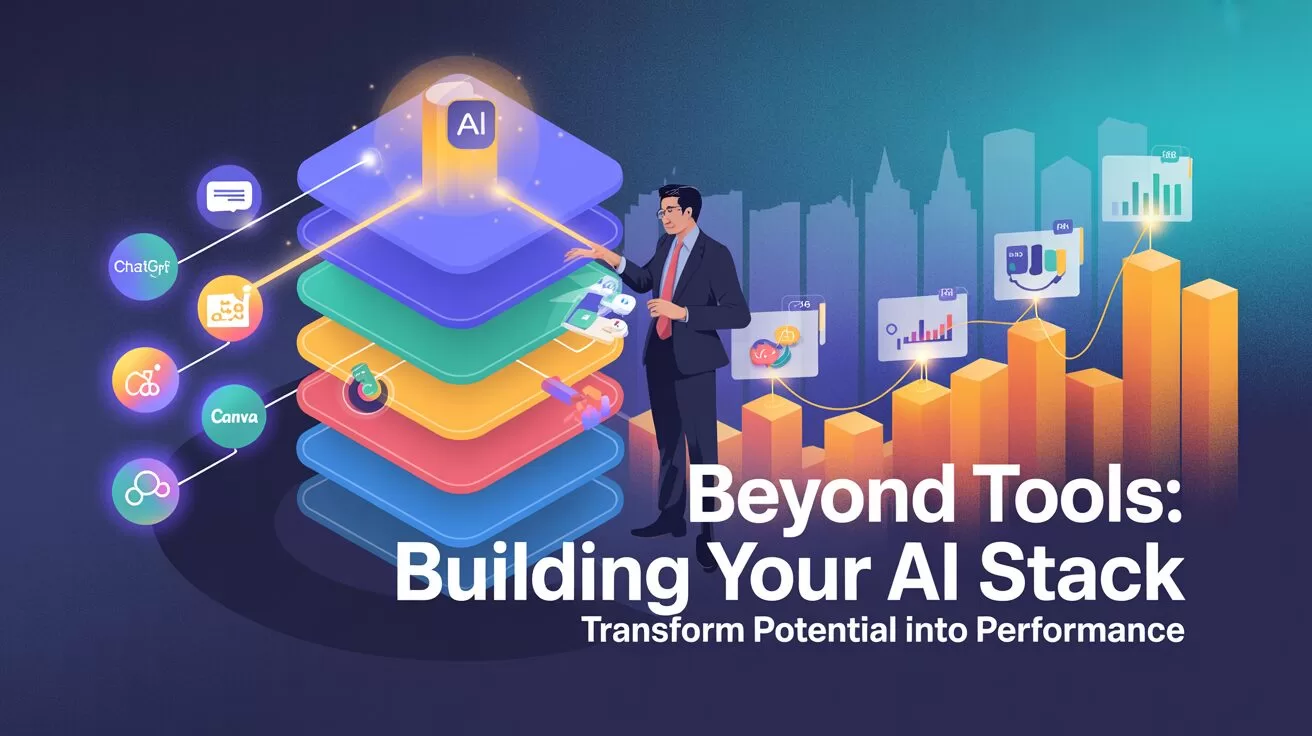Opinion
Opinion: China’s AI Dominance
Exploring China’s AI dominance and its strategic, ethical, and global implications.
Published
1 year agoon
By
AIinAsia
TL;DR:
- China’s AI dominance in global AI sector is clear, with top companies in facial recognition technology.
- China’s AI strategy includes R&D, industrialisation, and talent development, aiming for global influence by 2030.
- Ethical considerations, international relations, and challenges in AI development are key aspects of China’s AI growth.
- Balancing AI advancements with ethical and societal considerations is crucial for China’s continued leadership in AI.
Introduction:
China’s artificial intelligence (AI) sector is rapidly advancing and gaining global influence. With a strategic and innovative approach, Chinese companies are dominating the AI landscape, particularly in facial recognition technology. In this article, we’ll explore China’s AI strategy, ethical considerations, international relations, and challenges, while providing a comparative analysis with other leading nations.
China’s AI Leadership and Strategic Initiatives
China’s AI sector is thriving, with Chinese companies leading in facial recognition technology. The U.S. government recently ranked the top five companies in facial recognition accuracy, all of which were Chinese. This success stems from the alignment of predictive capabilities and government objectives, supported by a national AI strategy that focuses on R&D, industrialisation, and talent development.
“China is exporting vast amounts of AI technology, facilitated by the government’s data collection efforts and the use of state data for commercial projects.” David Yang, Harvard Economics Professor
By 2030, China aims to enhance its AI talent and university curricula, further cementing its position as a global AI leader.
Ethical and Regulatory Aspects
As China rapidly develops AI, ethical considerations and regulation become crucial. Balancing innovation with individual rights and privacy protection is a challenge. While specific policy details may not be available, China is likely working to strike this balance, recognizing the importance of ethical AI development.
International Relations and Global Impact
China’s AI advancements significantly influence international relations. As a global AI leader, China’s strategies and policies could shape international norms and standards in AI governance. China’s involvement in global initiatives like the AI Safety Summit and the Global AI Governance Initiative highlights its role in shaping the future of AI technology.
Challenges and Criticisms
China’s AI development faces challenges such as ensuring data privacy, preventing algorithmic biases, and addressing global concerns about surveillance and human rights. Balancing rapid technological growth with these ethical and societal considerations remains a complex task for China.
Comparative Analysis with the US and EU
Compared to the United States and European Union, China’s AI strategy features strong government support and integration of AI into various sectors. However, it differs in terms of regulatory frameworks and ethical considerations, with Western nations often emphasizing individual privacy and data protection.
Achieving Balance and Responsible Leadership
China can achieve balance by enhancing transparency in AI development, engaging in international collaborations, and fostering public discourse on AI ethics. Incorporating diverse perspectives in policy-making and aligning AI applications with universally accepted ethical principles can bolster China’s position as a responsible global leader in AI technology.
Conclusion: AI advancements
China’s strategic approach to AI, integrating state goals with technological innovation, positions it as a key player in the global AI landscape. As China continues to lead in AI, balancing ambitious development goals with ethical considerations and international norms will be essential for maintaining its competitive edge.
Comment and Share on China’s AI dominance
How do you think China’s approach to AI development will shape the future of artificial intelligence in Asia and globally? Share your thoughts below and don’t forget to subscribe for updates on AI and AGI developments in Asia.
You may also like:
- 2024: Navigating the AI Boom
- South Korea’s AI Development: A Future Blueprint?
- Asia’s AI Revolution – A Journey of Growth, Challenges, and Promise
- Or read more about China’s AI achievements at the Harvard Kennedy School by tapping here.
Author
Discover more from AIinASIA
Subscribe to get the latest posts sent to your email.
You may like
-


The View From Koo: Does Your Business Really Need an AI Strategist? The Surprising Answer
-


AI Risk Management: Navigating the Opportunities and Challenges in Asia
-


5 Prompts to Ignite Your Job Search With AI
-


GO DEEPER: AI and the Future of Human Intelligence
-


The Rise of AI-Assisted Peer Reviews in Asia’s AI and AGI Research
-


12 Powerful ChatGPT Prompts for Mastering PowerPoint With AI in 2024
Business
Adrian’s Arena: Stop Collecting AI Tools and Start Building a Stack
How to transform scattered AI tools into a strategic stack that drives real business outcomes. Practical advice for startups and enterprises.
Published
1 week agoon
May 23, 2025
TL;DR — What You Need To Know
- Stop collecting random AI tools and start building an intentional “stack” – a connected system of tools that work together to solve your specific business problems.
- The best AI stacks aren’t complicated but intentional – they reduce friction, create clarity, and become second nature to your team’s workflow.
- For Southeast Asian businesses, successful AI stacks must address regional complexities like language diversity, mobile-first users, and local regulations.
Why Your AI Approach Needs a Rethink
Look around and you’ll see AI tools popping up everywhere – they’re like coffee shops in Singapore, one on every corner promising to give your business that perfect boost.
But here’s what I keep noticing in boardrooms and startup meetings: everyone’s got tools, but hardly anyone has a proper stack.
Most teams aren’t struggling to find AI tools. They’re drowning in disconnected tabs – ChatGPT open here, Perplexity bookmarked there, Canva floating around somewhere, and that Zapier automation you set up months ago but barely remember how to use.
They’ve got all the ingredients but no kitchen. No real system for turning all this potential into actual business results.
AI stack vs. tool collection
It’s so easy to jump on the latest shiny AI thing, isn’t it? The hard part is connecting these tools into something that actually moves your business forward.
When I talk to leaders about building real AI capability, I don’t start by asking what features they want. I ask what problems they’re trying to solve. What’s slowing their team down? Where are people burning valuable time on tasks that don’t deserve it?
That’s where stack thinking comes in. It’s not about collecting tools – it’s about designing a thoughtful, functional system that reflects how your business actually operates.
The best AI stacks I’ve seen aren’t complicated – they’re intentional. They remove friction. They create clarity. And most importantly, they become second nature to your team.
Building Intentional AI Workflows
For smaller teams and startups, an effective AI stack can be surprisingly simple. I often show founders how just four tools – something like ChatGPT, Perplexity, Ideogram, and Canva – can take you from initial concept to finished marketing asset in a single afternoon. It’s lean, fast, and totally doable for under $100 a month. For small businesses, this kind of setup becomes a secret weapon that levels the playing field without expanding headcount.
But once you’re in mid-sized or enterprise territory, things get more layered. You’re not just looking for speed – you’re managing complexity, accountability, and scale. Tools need to talk to each other, yes, but they also need to fit into approval workflows, compliance requirements, and multi-market realities.
That’s where most random collections of tools start to break down.
When Your AI Stack Actually Works
You know your AI stack is working when it feels like flow, not friction.
Your marketing team moves from insight to idea to finished asset in hours instead of weeks. Your sales team walks into meetings already knowing the context that matters. Your HR people personalise onboarding without rebuilding slides for every new hire.
This isn’t theoretical – I’ve watched it happen in real organisations across Southeast Asia, where tools aren’t just available, they’re aligned. When AI stacks are built thoughtfully around actual business needs, they deliver more than efficiency – they bring clarity, confidence, and control.
And again, this is exactly what we focus on at SQREEM. Our ONE platform isn’t designed to replace your stack – it’s built to expand its capabilities, delivering the intelligence layer that boosts performance, cuts waste, and turns behavioural signals into strategic advantage.
Because the best stacks don’t just work harder. They help your people think better and move faster.
The Southeast Asia Factor
If you’re building a business in Southeast Asia, the game is a little different.
Your AI stack needs to handle the region’s complexity – language diversity, mobile-first users, and regulatory differences. That means choosing tools that are multilingual, work well on phones, and respect local privacy laws like PDPA. There’s no point automating customer outreach if it gets flagged in Vietnam or launching a chatbot that can’t understand Bahasa Indonesia.
The smartest stacks I’ve seen in SEA are light, fast, and culturally aware. They don’t try to do everything. They focus on what matters locally – and they deliver results.
Why This Matters Right Now
If AI is the new electricity, then stacks are the wiring. They determine what gets powered, what stays dark, and what actually transforms your business.
Too many teams are stuck in the “tool hoarding” phase – downloading, demoing, trying things out. But that’s not transformation. That’s just tinkering.
The real shift happens when teams design their workflows with AI at the centre. When they align their stack with their business strategy – and build in engines like SQREEM that drive real-world precision from day one.
That’s when AI stops being a novelty and starts being your competitive edge.
It’s the same shift we see in startups that go from idea to execution in a weekend. It’s the same shift large companies make when they finally move from small pilots to company-wide impact.
And it’s available to any team willing to think system-first.
A Simple Test
Here’s a quick way to check where you stand: If every AI tool you use disappeared overnight… what part of your workflow would actually break?
If the answer is “nothing much,” you don’t have a stack. You have some clever toys.
But if the answer is “everything would grind to a halt” – good. That means you’re not just playing with AI. You’ve made it essential to how you operate.
And here’s the harder question: Is your AI stack simply helping you move faster – or is it actually helping you compete smarter?
If you’re serious about building the kind of AI stack that drives real outcomes – not just activity – I’d love to hear how you’re approaching it. What’s in your stack today? Where are you seeing gaps? Drop a comment below and let’s swap ideas.
Thanks for reading!
Adrian 🙂
Author
-
Adrian is an AI, marketing, and technology strategist based in Asia, with over 25 years of experience in the region. Originally from the UK, he has worked with some of the world’s largest tech companies and successfully built and sold several tech businesses. Currently, Adrian leads commercial strategy and negotiations at one of ASEAN’s largest AI companies. Driven by a passion to empower startups and small businesses, he dedicates his spare time to helping them boost performance and efficiency by embracing AI tools. His expertise spans growth and strategy, sales and marketing, go-to-market strategy, AI integration, startup mentoring, and investments. View all posts
Discover more from AIinASIA
Subscribe to get the latest posts sent to your email.
Business
Adrian’s Arena: What Is Project Stargate and How Will It Impact Asia’s AI Future?
How Project Stargate’s $500 billion investment may impact Asia’s AI future—opportunities, challenges, and strategies for Asia.
Published
4 months agoon
January 22, 2025
TL;DR
- The $500 billion Project Stargate initiative by the US is set to reshape global AI dynamics, pushing Asia to innovate rapidly.
- Asia faces challenges like brain drain, regulatory pressures, and the need for faster AI adoption across industries.
- Opportunities abound in collaboration, regional specialisation, and industry-specific transformations.
The Stargate Initiative: A Bold Move That’s Got Asia Watching
President Donald Trump has just announced Project Stargate, a groundbreaking AI initiative designed to position the United States as the global AI leader. With an investment of up to $500 billion and the backing of OpenAI, Oracle, and SoftBank, Stargate is set to redefine AI infrastructure and talent development.
But here’s the thing: while this project is US-focused, its ripple effects will be felt far beyond its borders. For Asia, the stakes are high. Can the region capitalise on this moment, or will it find itself playing catch-up?
Let’s explore how Project Stargate is reshaping the game for Asia’s AI ambitions, industry transformation, and policy development.
What is Project Stargate?
Announced on 22 January 2025, Project Stargate is the United States’ most ambitious AI initiative to date, aiming to secure global AI dominance through a $500 billion investment. The programme is a collaborative effort between the US government and key industry players, including OpenAI, Oracle, and SoftBank. Its scope spans three primary pillars:
- AI Infrastructure Development:
- Establishing a nationwide network of AI supercomputers to support cutting-edge research and deployment.
- Building AI-ready data centres optimised for scalability and efficiency.
- Upgrading digital infrastructure in rural and underserved areas to democratise AI access.
- Talent and Workforce Upskilling:
- Creating over 100,000 high-paying AI-related jobs in research, development, and deployment.
- Introducing AI education into primary and secondary schools to nurture talent from an early age.
- Partnering with universities and private institutions to fund scholarships, fellowships, and training programmes.
- Industry-Focused Initiatives:
- Prioritising sectors like healthcare, defence, energy, and finance for AI integration.
- Providing grants and incentives for startups innovating in AI applications, from generative AI tools to advanced robotics.
- Accelerating the development of AI ethics frameworks and ensuring AI systems align with democratic values.
Timeline and Milestones: Project Stargate is designed as a phased initiative with key milestones over the next decade:
- 2025-2027: Laying the Foundation
- Deploy AI-ready infrastructure in priority regions across the US.
- Begin workforce upskilling programmes, with an initial focus on underserved communities.
- 2028-2030: Scaling Innovation
- Launch major AI initiatives in healthcare (e.g., diagnostics powered by large language models) and defence (e.g., predictive analytics for national security).
- Begin exporting advanced AI technologies to allies, fostering collaboration while ensuring US leadership.
- 2031 and Beyond: Global AI Leadership
- Establish the US as the go-to destination for AI talent, innovation, and investment.
- Shape global AI standards and ethics policies through multilateral partnerships.
Technologies at the Core of Project Stargate: The initiative will focus on driving innovation in several cutting-edge areas:
- Generative AI: Developing models with improved creativity, contextual understanding, and multi-modal capabilities.
- Edge AI: Enhancing AI’s performance in IoT devices, enabling real-time decision-making at the source.
- Quantum AI: Investing in quantum computing to push the boundaries of problem-solving and data processing.
- AI Safety: Creating robust, interpretable AI systems that align with ethical standards.
Asia’s AI Competitiveness: Time to Double Down
Stargate has put Asia’s AI strategies under the spotlight. The US’s massive investment is a wake-up call for governments and businesses alike to accelerate their AI initiatives. Here’s how some of Asia’s key players are reacting:
- China: Already a global AI powerhouse, wlth an AI market projected to reach $145 billion by 2030, China’s national AI strategy is likely to ramp up even further. From semiconductor manufacturing to AI-driven tech exports, Beijing will focus on countering Stargate’s competitive edge.
- India: Known for its IT expertise, India could use this moment to enhance its AI ecosystem. Expect initiatives like Digital India and Startup India to evolve with more focus on AI funding and local talent retention.
- Singapore: A regional AI leader, Singapore’s Smart Nation initiatives and plans to grow its AI workforce to 15,000 by 2028 may now need to scale up to stay ahead.
- ASEAN: As a bloc, ASEAN’s Digital Economy Framework Agreement (DEFA) could be pivotal in harmonising AI policies across the region to compete collectively.
Talent Tug-of-War: Will Asia Keep Its Best Minds?
One of the biggest challenges for Asia will be retaining top talent. With Stargate promising over 100,000 new AI jobs in the US, the lure of lucrative salaries and cutting-edge research opportunities will be hard to resist.
How Asia Can Fight Back
- Upskilling at scale: Programmes like AI Singapore and India’s AI-focused education initiatives are critical for building and retaining talent pipelines.
- Competitive incentives: Companies across Asia, from Alibaba to Tata Consultancy Services, are stepping up with attractive packages to retain talent.
- Reverse brain drain: As Asia’s AI ecosystems mature, expatriates may return, bringing global expertise to fuel local innovation.
Industry Impacts: Who Stands to Gain from Project Stargate?
Project Stargate is set to reshape industries across the globe, and Asia has a lot to gain—if it moves quickly enough.
Healthcare: AI to the Rescue
Asia’s healthcare systems are under pressure, but AI could be a game-changer.
- The opportunities: Faster diagnostics, AI-assisted surgery, and personalised medicine could transform healthcare. India’s use of AI for early cancer detection is just the start.
- The challenge: Stargate’s talent pull might make it harder for Asia to keep its top researchers.
Agriculture: Smarter Tools for Farmers
For countries like Vietnam and Indonesia, AI could revolutionise farming.
- What’s possible: AI tools for crop monitoring and supply chain optimisation could boost productivity.
- The hurdle: Infrastructure gaps in developing economies may slow adoption, requiring government support.
Manufacturing and Logistics: AI on the Factory Floor
Asia’s manufacturing sector is ripe for transformation.
- The big wins: Smart factories, predictive maintenance, and AI-driven supply chains could boost efficiency. Taiwan’s semiconductor dominance could see even greater demand.
- The risks: Stargate’s US-centric advancements might erode Asia’s manufacturing edge unless rapid adoption and scaling occur.
Startups and Tech Hubs: Innovation in Overdrive
Asia’s startup scene has a lot to gain—but only if it stays agile.
- The upside: Partnerships with Stargate firms could unlock new funding and knowledge-sharing opportunities.
- The concern: With investors eyeing Stargate, Asian startups may face tougher competition for funding. Specialisation in niche areas like language AI or fintech will be key.
Collaboration vs Competition: Striking the Right Balance
Despite the competitive undertones of Stargate, it also presents opportunities for collaboration:
- SoftBank’s role: With SoftBank as a Stargate partner, there’s potential for cross-border partnerships between US and Asian firms.
- Knowledge exchange: Asian and US firms could collaborate on niche projects, such as AI ethics or robotics, to share expertise and resources.
- Regional specialisation: By focusing on areas where Asia has unique strengths—like cultural and linguistic AI—regional firms can carve out their own niches.
Policy and Regulation: Time to Get Ahead
Project Stargate is likely to influence Asia’s regulatory landscape, especially in areas like intellectual property and digital trade.
- AI-friendly IP laws: Japan and Singapore have led the way in updating IP frameworks for AI-generated works. Others need to follow suit to protect innovation.
- Digital trade agreements: Cross-border data flow rules, central to AI’s success, could become a focus of ASEAN’s DEFA and similar agreements.
- Cybersecurity: With AI adoption comes increased cyber risks. Asia must strengthen AI-driven defences to secure its digital future.
The Fork in the Road: Asia’s Opportunity to Lead
Project Stargate has thrown down the gauntlet. Asia can’t afford to sit on the sidelines. Governments, businesses, and industries must work together to:
- Invest in talent, infrastructure, and innovation.
- Strengthen regional collaborations to counter US dominance.
- Focus on areas where Asia’s unique strengths can shine.
What Do You Think?
Will Asia seize this opportunity to lead the global AI race, or risk falling behind? Share your thoughts in the comments, or sign up for updates to stay informed about Asia’s AI future!
You may also like:
- Go Deeper: Asia’s AI Revolution – A Journey of Growth, Challenges, and Promise
- Why Businesses Struggle to Adopt Generative AI in Asia
- India’s Shift in AI Regulation
Author
-
Adrian is an AI, marketing, and technology strategist based in Asia, with over 25 years of experience in the region. Originally from the UK, he has worked with some of the world’s largest tech companies and successfully built and sold several tech businesses. Currently, Adrian leads commercial strategy and negotiations at one of ASEAN’s largest AI companies. Driven by a passion to empower startups and small businesses, he dedicates his spare time to helping them boost performance and efficiency by embracing AI tools. His expertise spans growth and strategy, sales and marketing, go-to-market strategy, AI integration, startup mentoring, and investments. View all posts
Discover more from AIinASIA
Subscribe to get the latest posts sent to your email.
Marketing
Adrian’s Arena: Reaching Today’s Consumers – How AI Enhances Digital Marketing
AI Digital Marketing is revolutionising consumer engagement across Asia, enhancing personalisation and customer service.
Published
6 months agoon
November 22, 2024
TL;DR:
- AI is transforming digital marketing in Southeast Asia, personalising experiences across multiple platforms.
- AI-powered chatbots enhance customer service, are available 24/7, and handle queries in multiple languages.
- Programmatic advertising powered by AI optimises ad placement without cookies or personal data, ensuring privacy.
AI Infused Marketing: Engaging Consumers Across Digital Worlds
Artificial Intelligence (AI) is rapidly transforming digital marketing in Southeast Asia. It’s no longer just about reaching people on their phones—now it’s about connecting with them wherever they are, whether it’s on YouTube, connected TVs, websites, or even while they’re playing a game.
AI is helping brands personalise these experiences in a way that feels seamless, making every interaction more relevant.
Customer Insights and Personalisation
Have you ever noticed how some brands seem to know exactly what you want, almost like they’re reading your mind? That’s AI.
In a region as diverse as Southeast Asia, AI helps brands like Shopee and Lazada figure out what you’re into and serve up the perfect recommendations.
Whether you’re getting a product suggestion on their app or seeing a relevant ad while streaming on YouTube, AI is behind the scenes making sure it all feels tailored just for you.
Chatbots and Customer Service
We’ve all been there—needing help at odd hours or just not wanting to deal with a long wait time. That’s where AI-powered chatbots come in.
These little helpers are available 24/7 and can handle queries in multiple languages. Lazada, for example, uses chatbots to assist shoppers with everything from order tracking to product recommendations.
Whether you’re browsing late at night on your phone or checking something on your laptop, you can get quick, accurate answers without waiting from AI Chatbots.
Content Creation and Curation
Creating content that speaks to millions of people across Southeast Asia? AI has got that covered. It doesn’t just create content—it curates it, serving up what’s relevant for each user.
Zalora, for example, uses AI to recommend outfits based on your browsing history. This means that whether you’re on their app or website or even seeing their content on a connected TV, it feels like it was made just for you.
Programmatic Advertising
Ever felt like an ad was following you around the internet? That’s AI doing its job. Programmatic advertising powered by AI is all about putting the right message in front of the right person, at just the right time.
SQREEM is a big player in this space, helping brands in Southeast Asia optimise their ads across digital platforms—from YouTube and gaming apps to connected TVs.
And the best part? They do it all without cookies or personal data, making it privacy-friendly.
SEO and Voice Search Optimisation
With voice search on the rise, especially in places like Indonesia and Thailand, AI helps brands stay on top of how people are searching. Instead of typing out searches, people are now talking to their devices:
“Hey Google, where’s the best coffee shop near me?”
AI ensures that content is optimised for these conversational searches, so brands can be found easily across platforms—from websites to voice-activated assistants.
Email Marketing Automation
Think about the emails you get from your favourite brands—AI likely had a hand in making sure they arrived at just the right moment.
AI-powered tools like ActiveCampaign analyse when people are most likely to open emails and what they’re interested in. So, whether you’re checking your inbox on your phone, tablet, or laptop, AI makes sure the content is personalised and relevant.
Enhanced Data Analytics
In Southeast Asia’s fast-moving markets, staying on top of consumer trends is essential. AI-powered data analytics tools give brands like AirAsia real-time insights, helping them adjust their strategies on the fly.
Whether it’s for social media, connected TV, or in-app ads, AI helps brands react to changing behaviours and fine-tune their marketing efforts quickly.
Social Media Monitoring and Influencer Marketing
Southeast Asia loves social media, and AI is there to help brands track what’s happening in real-time. Platforms like Sprinklr use AI to monitor conversations, helping brands understand what people are saying and when.
AI also helps identify the perfect influencers to partner with—especially micro-influencers who can authentically connect with niche audiences in different countries.
Now, you might not even realise some influencers are entirely AI!
Image and Video Recognition
Visual content is a big deal, and AI helps brands figure out what kind of images and videos work best. Whether it’s tweaking a YouTube ad or adjusting visuals for connected TV, AI can analyse what gets the most engagement and optimise future campaigns.
Brands like Grab are already using AI to make their ads more appealing across platforms like connected TV and mobile.
Predicting Trends and Consumer Behaviour
Wouldn’t it be great to know what your customers want before they even ask? AI does just that.
By analysing data from apps, websites, and even connected TVs, brands like Shopee are using AI to predict shopping habits and adjust their marketing strategies. It’s all about staying ahead of the competition and giving customers exactly what they’re looking for.
Case Study: Shopee’s AI Success
Shopee is nailing AI integration. From personalised recommendations to optimised ad placements, they’ve made the shopping experience seamless across platforms. Whether you’re browsing on the app, desktop, or watching a connected TV ad, Shopee’s AI ensures the experience is smooth and relevant.
Data Privacy Concerns
As AI continues to grow, so does the importance of data privacy, especially in Southeast Asia where regulations like Singapore’s PDPA are strict.
Unlike many platforms, SQREEM takes a unique approach by not using cookies or any personal data. This allows them to help deliver effective, personalised ads while respecting users’ privacy through AI driven behavioural insights.
The Future of AI in Southeast Asia’s Digital Marketing
Looking ahead, AI will continue to revolutionise digital marketing in Southeast Asia. With innovations like virtual influencers and smarter machine learning, brands will be able to connect with consumers across all digital touch points—from gaming to connected TV—with even more precision and personalisation.
Marketers who embrace AI now will be the ones leading the pack.
Comment and Share:
How do you think the rise of AI in digital marketing will change the way brands interact with consumers in the next five years? Will we see a future where every ad and piece of content is perfectly tailored to our individual preferences, or is there a risk that personalisation could become too invasive?
Share your thoughts in the comments below as we hone our learning skills together, and don’t forget to subscribe for updates on AI and AGI developments.
You may also like:
- 7 Ways Marketers in Asia Can Leverage Generative AI to Win Big
- Revolutionising Marketing: The Impact of AI in Asia’s Business Landscape
- Or find out more about Adrian Watkins by tapping here.
Author
-
Adrian is an AI, marketing, and technology strategist based in Asia, with over 25 years of experience in the region. Originally from the UK, he has worked with some of the world’s largest tech companies and successfully built and sold several tech businesses. Currently, Adrian leads commercial strategy and negotiations at one of ASEAN’s largest AI companies. Driven by a passion to empower startups and small businesses, he dedicates his spare time to helping them boost performance and efficiency by embracing AI tools. His expertise spans growth and strategy, sales and marketing, go-to-market strategy, AI integration, startup mentoring, and investments. View all posts
Discover more from AIinASIA
Subscribe to get the latest posts sent to your email.

Upgrade Your ChatGPT Game With These 5 Prompts Tips

If AI Kills the Open Web, What’s Next?

Build Your Own Custom GPT in Under 30 Minutes – Step-by-Step Beginner’s Guide
Trending
-

 Life3 weeks ago
Life3 weeks ago7 Mind-Blowing New ChatGPT Use Cases in 2025
-

 Learning2 weeks ago
Learning2 weeks agoHow to Use the “Create an Action” Feature in Custom GPTs
-

 Business3 weeks ago
Business3 weeks agoAI Just Killed 8 Jobs… But Created 15 New Ones Paying £100k+
-

 Tools3 weeks ago
Tools3 weeks agoEdit AI Images on the Go with Gemini’s New Update
-

 Learning1 week ago
Learning1 week agoBuild Your Own Custom GPT in Under 30 Minutes – Step-by-Step Beginner’s Guide
-

 Learning2 weeks ago
Learning2 weeks agoHow to Upload Knowledge into Your Custom GPT
-

 Business1 week ago
Business1 week agoAdrian’s Arena: Stop Collecting AI Tools and Start Building a Stack
-

 Life3 weeks ago
Life3 weeks agoAdrian’s Arena: Will AI Get You Fired? 9 Mistakes That Could Cost You Everything

































